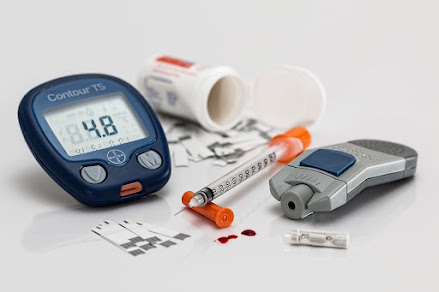Healthy weight loss is the process of reducing body weight in a safe and sustainable manner through a combination of healthy eating habits and regular physical activity. It involves making lifestyle changes that can be maintained over the long-term, rather than relying on fad diets or extreme measures that are not sustainable.
A healthy weight loss program takes into account a person's individual needs, including their age, sex, weight, and overall health status. It involves setting realistic goals for weight loss, such as losing 1-2 pounds per week, and making gradual changes to diet and physical activity habits.Healthy weight loss involves eating a balanced diet that is rich in fruits, vegetables, whole grains, lean protein, and healthy fats, while limiting processed foods and foods high in sugar and unhealthy fats. Regular physical activity is also an important component of a healthy weight loss program, as it helps to burn calories, build muscle, and improve overall health.
Why Healthy Weight Loss Is Necessary?
Healthy weight loss is important for a number of reasons. Here are some of the key reasons why healthy weight loss is necessary:
- Reduced risk of chronic diseases: Excess weight is associated with an increased risk of chronic diseases, such as heart disease, type 2 diabetes, and certain types of cancer. By achieving a healthy weight, individuals can reduce their risk of these diseases.
- Improved physical health: Achieving a healthy weight can also improve physical health in other ways, such as reducing joint pain and improving mobility.
- Improved mental health: Being overweight or obese can also impact mental health, leading to low self-esteem, depression, and anxiety. Achieving a healthy weight can improve mental health and quality of life.
- Increased energy and stamina: Losing weight can improve energy levels and physical endurance, making it easier to engage in physical activity and daily tasks.
- Better sleep quality: Losing weight can also improve sleep quality, which in turn can have positive impacts on overall health and well-being.
- Improved confidence: Achieving a healthy weight can boost confidence and self-esteem, which can have positive impacts on all aspects of life.
What People Do Wrong For Weight Loss?
There are several common mistakes that people make when trying to lose weight. Here are some of them:
- Relying on fad diets: Many people try fad diets that promise quick weight loss, but these diets are often unsustainable and can lead to weight regain once the diet is over.
- Over-restricting calories: While a calorie deficit is necessary for weight loss, over-restricting calories can slow down metabolism and lead to nutrient deficiencies.
- Skipping meals: Skipping meals can lead to overeating later in the day and make it harder to stick to a healthy eating plan.
- Not getting enough protein: Protein is important for building and maintaining muscle mass, which is important for weight loss. Not getting enough protein can slow down weight loss progress.
- Relying on exercise alone: While exercise is important for weight loss, it is not enough on its own. A healthy diet is also necessary to support weight loss.
- Not drinking enough water: Dehydration can slow down metabolism and make it harder to lose weight.
- Overeating healthy foods: While healthy foods are important for weight loss, it is still possible to overeat them and consume too many calories.
- Not getting enough sleep: Lack of sleep can affect hormones that control appetite and metabolism, making it harder to lose weight.
- Emotional eating: Many people turn to food for comfort when stressed or emotional, which can lead to overeating and weight gain.
- Lack of consistency: Losing weight requires consistent effort and lifestyle changes. Inconsistency with healthy eating and exercise habits can slow down progress and lead to weight regain.
10 Tips For Healthy Weight Loss:
It is important to approach weight loss in a healthy and sustainable way, in order to achieve and maintain a healthy weight over the long-term.
- Set realistic goals: Instead of aiming to lose a large amount of weight in a short amount of time, set smaller goals that are achievable.
- Make a plan: Plan your meals in advance and prepare healthy snacks. This will help you avoid impulsive eating and make healthier choices.
- Eat a balanced diet: Focus on eating a diet that is balanced and nutrient-rich, including plenty of fruits and vegetables, whole grains, lean protein, and healthy fats.
- Avoid processed foods: Processed foods are often high in calories, sugar, and unhealthy fats, so try to limit your consumption of these foods.
- Control portion sizes: Use smaller plates and bowls, and practice portion control by measuring your food.
- Drink plenty of water: Drinking water can help you feel fuller and stay hydrated, which can support weight loss.
- Incorporate physical activity: Regular physical activity can help you burn calories and boost your metabolism, so find activities you enjoy and make them a part of your routine.
- Get enough sleep: Lack of sleep can affect your metabolism and hormone levels, which can make it harder to lose weight. Aim for 7-8 hours of sleep each night.
- Manage stress: Stress can lead to emotional eating and make it harder to stick to healthy habits. Find healthy ways to manage stress, such as yoga or meditation.
- Stay consistent: Consistency is key when it comes to healthy weight loss, so make healthy eating and exercise a part of your daily routine.












